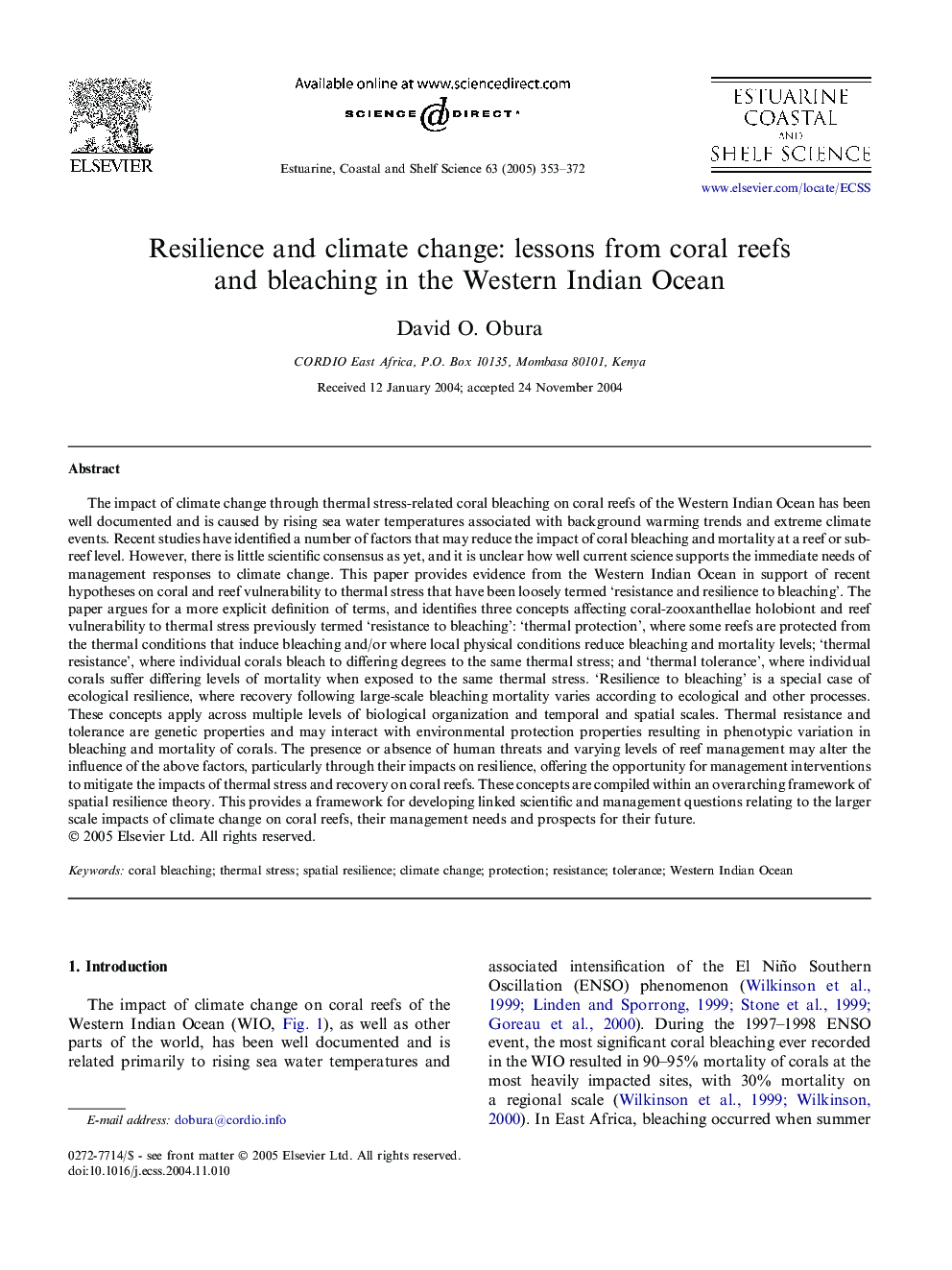| Article ID | Journal | Published Year | Pages | File Type |
|---|---|---|---|---|
| 9480717 | Estuarine, Coastal and Shelf Science | 2005 | 20 Pages |
Abstract
The impact of climate change through thermal stress-related coral bleaching on coral reefs of the Western Indian Ocean has been well documented and is caused by rising sea water temperatures associated with background warming trends and extreme climate events. Recent studies have identified a number of factors that may reduce the impact of coral bleaching and mortality at a reef or sub-reef level. However, there is little scientific consensus as yet, and it is unclear how well current science supports the immediate needs of management responses to climate change. This paper provides evidence from the Western Indian Ocean in support of recent hypotheses on coral and reef vulnerability to thermal stress that have been loosely termed 'resistance and resilience to bleaching'. The paper argues for a more explicit definition of terms, and identifies three concepts affecting coral-zooxanthellae holobiont and reef vulnerability to thermal stress previously termed 'resistance to bleaching': 'thermal protection', where some reefs are protected from the thermal conditions that induce bleaching and/or where local physical conditions reduce bleaching and mortality levels; 'thermal resistance', where individual corals bleach to differing degrees to the same thermal stress; and 'thermal tolerance', where individual corals suffer differing levels of mortality when exposed to the same thermal stress. 'Resilience to bleaching' is a special case of ecological resilience, where recovery following large-scale bleaching mortality varies according to ecological and other processes. These concepts apply across multiple levels of biological organization and temporal and spatial scales. Thermal resistance and tolerance are genetic properties and may interact with environmental protection properties resulting in phenotypic variation in bleaching and mortality of corals. The presence or absence of human threats and varying levels of reef management may alter the influence of the above factors, particularly through their impacts on resilience, offering the opportunity for management interventions to mitigate the impacts of thermal stress and recovery on coral reefs. These concepts are compiled within an overarching framework of spatial resilience theory. This provides a framework for developing linked scientific and management questions relating to the larger scale impacts of climate change on coral reefs, their management needs and prospects for their future.
Keywords
Related Topics
Physical Sciences and Engineering
Earth and Planetary Sciences
Geology
Authors
David O. Obura,
